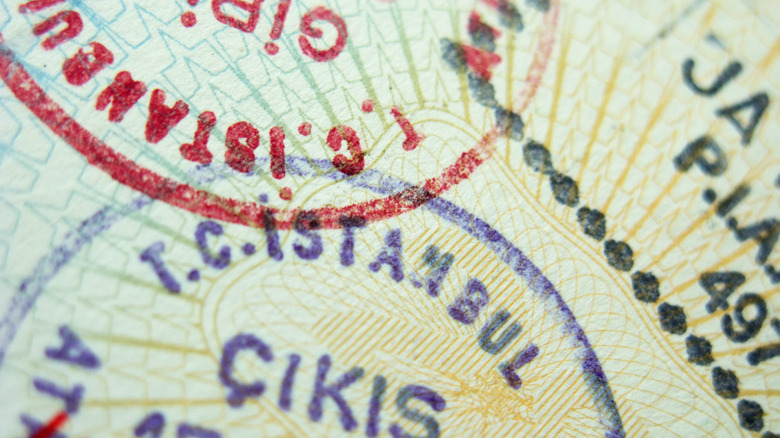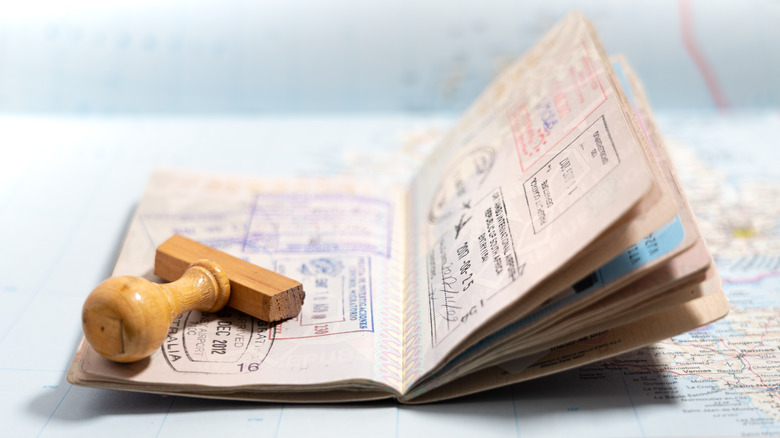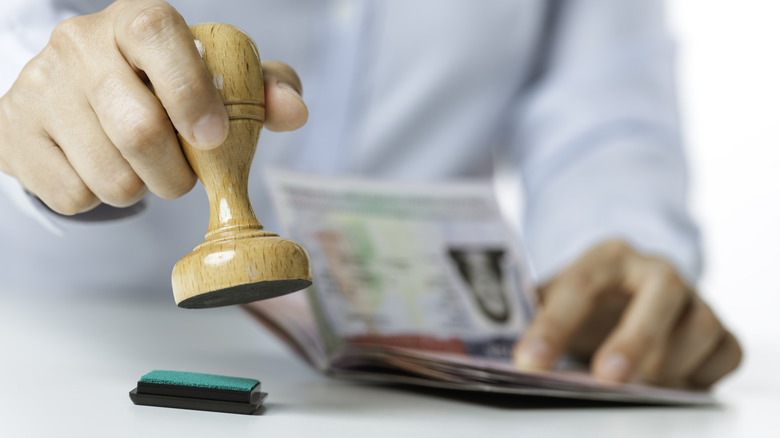Travel Guides International Passports
Lauren Richards
Passport stamps tell the story of the countries you’ve traveled to. For years, they’ve been a staple of international travel that many people look forward to. Pulling out your passport and flipping through pages and pages of stamps is a satisfying feeling; on the flip side, getting a new passport and looking at the blank pages create excitement and anticipation. Each page carries potential as you plan out which countries will make their mark. Regardless of how full or empty your passport is, it’s fun to compare which countries have the coolest stamps. Essentially, the passport stamp has become synonymous with travel. That’s about to change.
Countries are integrating technology to streamline the process of crossing borders, and part of this includes eliminating the passport stamp. For example, the European Union plans to utilize facial recognition and fingerprint identification to allow people’s entry into EU countries.
While this is good news for those wanting to get through lines quicker, not everyone is thrilled about it. Passport stamps serve as a sentimental souvenir for many. “There’s a sort of dreamy nostalgia that comes with passport stamps,” NerdWallet travel expert Sally France told Condé Nast Traveler. “[They’re] tangible evidence of those world-traveling experiences.”
Programs that will replace the stamp

Ytwong/Getty Images
Hong Kong and South Korea were some of the earliest places to get rid of passport stamps. Other nations have since followed. In 2022, the U.S. began the Simplified Arrival Program, which is an “international arrival process that uses facial biometrics to automate the manual document checks that are already required for admission into the United States,” the U.S. Customs and Border Patrol announced in a press release. This program is used in U.S. international airports and takes only seconds to identify travelers with their paperwork and other forms of ID. It streamlines the process and bypasses the need for passport stamps. The U.S. also digitized the I-94 form, allowing travelers to fill out their arrival and departure information electronically.
Countries including Singapore and Australia have also left passport stamps behind, and members of the European Union are set to do the same this fall. Some countries, like the U.K., however, haven’t publicly announced plans to switch to digital processes and will continue issuing passport stamps.
Alternatives to the stamp

maramade/Shutterstock
While nostalgic and sentimental, passport stamps are not the most efficient. “Stamps often aren’t the best solution,” French told Condé Nast Traveler. “If they’re printed poorly, they can be tough to access later on. They’re often placed randomly in passport books which can make them tough to find — and they can also be easily counterfeited.” Part of the reason behind integrating technology is security.
For those wanting to continue collecting passport stamps, French went on to suggest visiting a souvenir shop and getting a faux stamp. With that being said, think twice before putting a souvenir stamp in your actual passport because doing so can invalidate your passport for travel since it’s not an authorized stamp. If you’re open to marking memories in a digital format, French said geotagging photos is another great way to go.
While many are saddened by the news of countries removing the passport stamp, it’s hard not to be at least a little bit excited about getting through customs faster.

